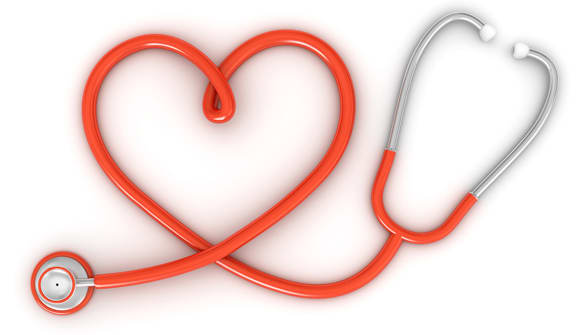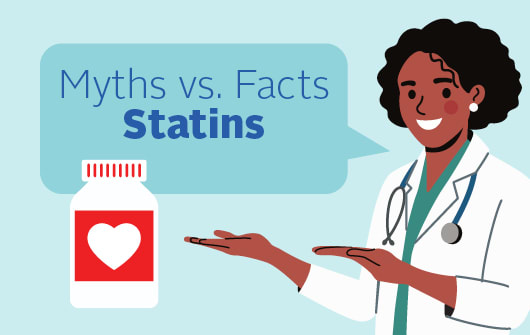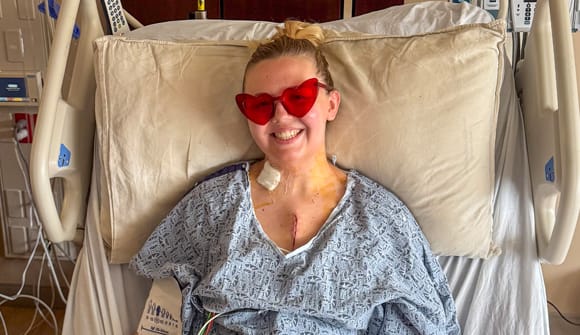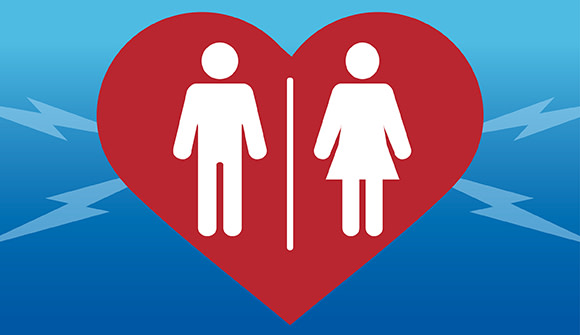What is acute myocarditis?
UF basketball player Keyontae Johnson’s heart diagnosis, and whether it relates to COVID-19.
Article Author: Katie McPherson
Article Date:

When University of Florida basketball player Keyontae Johnson collapsed on the court during the Gators’ December 12, 2020, game against Florida State, it shocked his team, the crowd, and the nation. How could a seemingly healthy young man who just dunked on his rival team suddenly faint?
Johnson was one of many UF basketball players who tested positive for COVID-19 earlier this year. As news about his collapse broke, many in the public wondered whether it could be related to COVID-19, perhaps another long-term side effect of the coronavirus the medical community is still learning about. His family released a statement on February 3, 2021, stating Johnson's doctors determined his sudden health scare was not a direct result of his earlier bout with COVID-19. So, why did the world make the connection between the coronavirus and his sudden collapse?
How could this happen?
Johnson was discharged from the hospital in time to spend Christmas with his family and was sent home with a diagnosis: acute myocarditis. Chetan Hampole, MD, FACC, board-certified cardiologist with Baptist Heart Specialists, explained what that means.
“Myocarditis is an inflammation of all or part of the myocardium, the muscular pumping portions of the heart. It can cause irregular heartbeat, fainting, shortness of breath, and can lead to heart failure. There are acute, subacute, and chronic forms. This athlete’s case is acute, meaning it came on relatively suddenly,” he said.
Connection to COVID-19?
What causes sudden inflammation of the heart?
“Less than 50% of cases of myocarditis have a clear cause, but most of the ones that do turn out to be viral,” he explained. “No doubt about it, we’re seeing higher rates of myocarditis during COVID-19. Of the total number of people affected with COVID, it’s unclear what the rates of myocarditis are, but hospitalized patients with COVID-19 have a myocarditis rate of about 20%. Of those patients, a little more than 50% will ultimately die, so the mortality rate is high.”
Viral infections can lead to heart inflammation weeks after a person fights off the virus. Dr. Hampole explained this is because the immune system is highly active and can mistakenly attack heart tissue. In autopsies of patients with both COVID-19 and myocarditis diagnoses, the coronavirus has even been found in the tissue of the heart, so the association is clear, even if it wasn't the cause of Johnson's own health scare.
What to watch for
People who have had COVID-19, even those with symptoms mild enough to not require hospitalization, should be on the lookout for cardiac symptoms after infection. Dr. Hampole says to pay attention to:
- Chest pain.
- Fatigue.
- Inability to exercise.
- Shortness of breath.
- Water/swelling in the arms and legs (edema).
“If weeks after you recover from COVID, your ability to be active is decreased, it’s time to see a physician. You can go through the ER, check in with your primary care provider, or come directly to a cardiologist. We’ve seen a lot of patients who have self-referred because weeks after infection they are suffering cardiac symptoms,” he said.
Tests and treatment
In these cases, doctors may try a few different tests to check on your heart.
“Testing usually includes an EKG and bloodwork for a cardiac protein the heart releases when injured,” Dr. Hampole said. “We look for fluid accumulating in the sac around the heart, and any evidence of heart failure where the chambers aren’t pumping correctly. The most specific test is cardiac MRI, and that is the gold standard. It has excellent sensitivity and is a great diagnostic tool for making that diagnosis.”
Doctors will usually try to treat the cause of the myocarditis and may prescribe medications to support the heart’s function in the meantime. Some patients will have chronic myocarditis, while others will recover completely. That’s why seeking care right away if you are having symptoms is so important.
If you have had COVID-19 and are experiencing cardiac symptoms, Baptist Heart Specialists can help. Call 904.720.0799 to make an appointment or request one online. To learn more about the COVID-19 vaccine, visit baptistjax.com/covid19vaccine.



